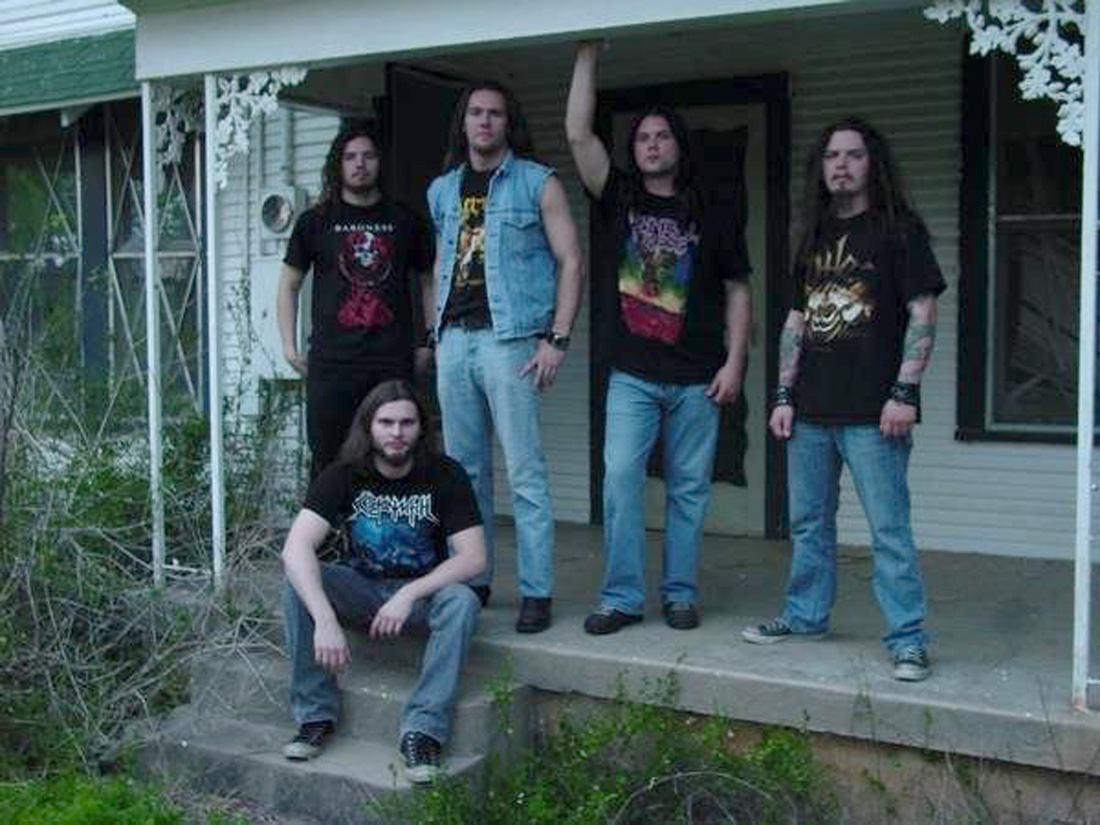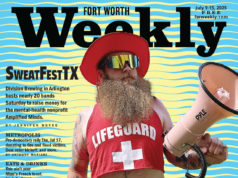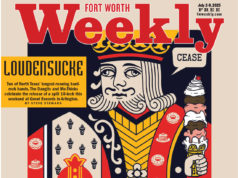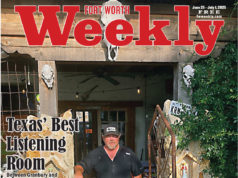Among the myriad branches of heavy metal’s family tree, none are as reductive as death metal. Overprotective parents think the moniker applies to any record with a scary album cover, and music critics lazily use it to pigeonhole any band with growled vocals and hyper-fast beats. If you’re a really lazy music critic, you probably think death metal applies to any band from Florida.
Turbid North wants to change that stereotype. At least unofficially.
“We really just use all the stuff we think is cool,” guitarist Alex Rydlinski said of the band’s songwriting process, later namechecking classic rock acts like Led Zeppelin and Pink Floyd. “We just like music, and we listen to lots of different things. We just happen to play death metal.”
And indeed, on a casual listen, the band’s most recent release, Orogeny, touches on much of the genre’s boilerplate sonic motifs (mainly so-called “Cookie Monster” vocals and a machine-precise, high-speed drum attack). But listen more closely, and you’ll find that Turbid North’s blackened blood is flecked with snatches of melody and twin guitar leads that burrow into your brain like worms in a rotting corpse. Or maybe a frozen one.
Turbid North was formed in North Pole, Alaska (near Fairbanks), in 2001 by Alex and his brother Adam on drums. Born into a musical family (both parents are classically trained musicians), the brothers developed their chops hammering on classic rock and metal tunes, occasionally jamming with friends before choosing the name and starting their first and only band. Through several lineup changes, the brothers, along with friend Nick Forkel on bass, built a following in their hometown, a fanbase that eventually spread to Anchorage, more than six hours away by road. At a fateful Anchorage gig in the mid-oughts, the Alaskans opened for Dallas’ Drowning Pool, whose members convinced all five Turbid North guys, including a new vocalist, to relocate to Texas.
“They said we’d have a much better chance of getting noticed in Texas,” Alex said over the phone recently, “so that’s what we did” — and landed in Fort Worth.
About a year later, Chris O’Toole, a bassist in an English thrash band called Savage Messiah, was monitoring the online presences of various Texas metal bands, because he was about to get married and move here as well. When the spot opened up in Turbid North, O’Toole was quick to join. “I kept an eye out for bands looking for bass players for a couple months, and I got pretty lucky,” he said. With O’Toole covering the low end, Forkel moved to guitar, sharing lead duties with Alex.
Despite a receptive metal scene and a comparatively favorable band climate here (cheap cost of living, comparative abundance of musician-friendly jobs), the band initially had a rough go. Besides the usual struggle to cover expenses (beer, gas, food, rent), Turbid North had to fill another hole in the lineup. The band’s singer “quit and moved back to Alaska,” Alex said “He just wasn’t up for the lifestyle, I guess.”
Luckily, some other bands in the metal community were in flux, in particular a popular Dallas band called Debris, best known for recently winning a spot on Ozzfest. Debris vocalist Brian McCoy joined Turbid North and solidified their lineup. While Forkel’s and Alex’s twin leads attack with the kind of relentless, technical precision you’d expect from a death metal band, their effects-laden ambient exploration are essential to Orogeny’s forays beyond death metal’s stylistic confines. Regardless of who played what five years ago, Drowning Pool had made the right call: Last June, Turbid North inked a deal with metal indie label Ironclad Recordings. The label promptly re-released Orogeny.
Named for the process by which mountains are formed, Orogeny was written and recorded when everyone but O’Toole was living in the same rental house in North Fort Worth, with Forkel and Alex trading riffs and lyrics and fleshing them out with Adam. While the sonics aim beyond the death metal spine, the lyrics (co-written by the whole band) land even further afield, avoiding the usual gore and sacrilegious posturing.
Forkel “got a hold of some Alaskan survival tales,” Alex said, “and he started forming a song around this one story — it turned into ‘The Hunter,’ ” a harrowing recount of a dead horse leaving the titular character stranded in an arctic wasteland.
“Lyrically, Orogeny’s themes have a lot to do with survival,” O’Toole said.
Alex agreed. “I think at the time, all of us except [McCoy] felt like we were out here all alone, so maybe that’s why we have all these songs about surviving the elements,” he said. “Plus we’re from Alaska, and that kind of contributes to those themes.”
Orogeny’s trek into new stylistic territory is borne on “Stormblast,” a nearly nine-minute journey of a flinty, near-suicidal mariner sailing into the jaws of a tsunami. The narrative was inspired by powerful waves that hammered Prince William Sound in 1964. In the song, an anxious guitar melody eventually slams into guttural vocals and bludgeoning distortion, crushing a momentary sense of safety with a devastating wall of sound. The album-closing “Floating the Ionosphere” explores these dynamics further, building upon dreamy atmospherics before the guitarmonies climb for the Aurora Borealis, trading Floydian ambience with bone-crushing riffage until you feel as if you’ve risen above the Earth only to re-enter and disintegrate.
With a genre-busting record and indie label support, Turbid North has been able to stay on the road for a good portion of the year, though a national run with Unearth and an Australian tour with Santa Barbara’s Devildriver both recently fell through. The band will not be on the road as extensively this spring (though the guys will fly to Alaska in September to play a few hometown gigs), and the break gives the band a chance to work on the next record, which, like Orogeny, will be produced and engineered in Forkel’s home studio.
“It would’ve been great to have gotten on those tours, but it’s great to be writing again,” Alex said. “With Orgeny, we wrote what felt right at the time. I don’t really know where we’re headed with this new one, but it’s pretty exciting to be able to do whatever we want.”













Awesome article. I’ve been lookin for some local Metal bandz. Turbid North soundz awes0me just chek out their video for Between the Glacier and the Sea….pretty hardc0re stuff. Hopeuflly they play somewhere live around here…like the Railclub.